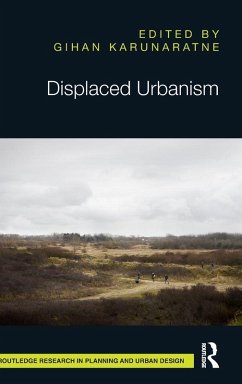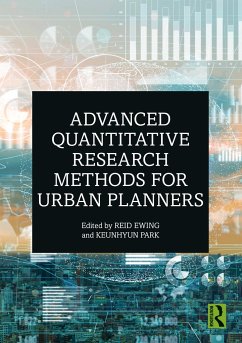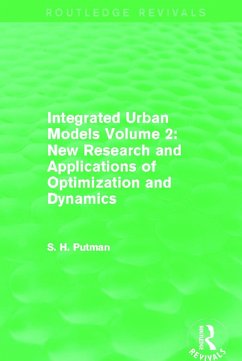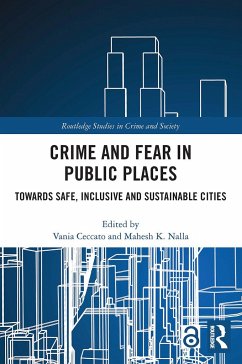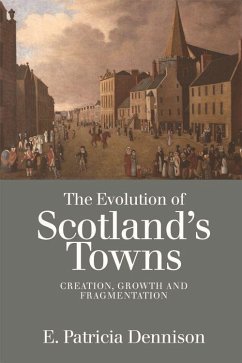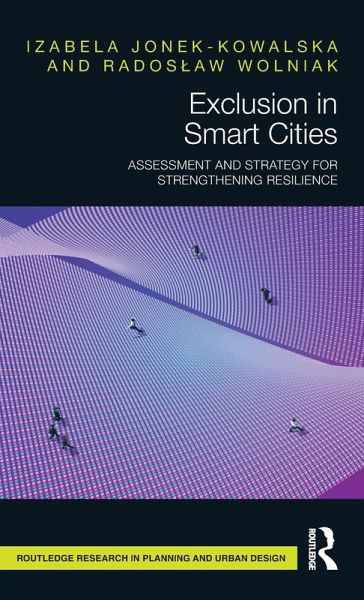
Exclusion in Smart Cities
Assessment and Strategy for Strengthening Resilience
Versandkostenfrei!
Versandfertig in 6-10 Tagen
137,99 €
inkl. MwSt.
Weitere Ausgaben:

PAYBACK Punkte
69 °P sammeln!
Smart Cities are fascinating, but they also have a dark side that little is said or written about. One issue is the possibility of generating various types of exclusion. For this reason, this book will develop principles for assessing the inclusiveness of Smart Cities and outline strategies for strengthening urban resistance to exclusion.The book will consider the essence, scale and types of exclusion and include analysis of inclusiveness in practice in the assessment and activities of Smart Cities. The research assesses Smart City literature, with particular emphasis on criticism of the Smart...
Smart Cities are fascinating, but they also have a dark side that little is said or written about. One issue is the possibility of generating various types of exclusion. For this reason, this book will develop principles for assessing the inclusiveness of Smart Cities and outline strategies for strengthening urban resistance to exclusion.
The book will consider the essence, scale and types of exclusion and include analysis of inclusiveness in practice in the assessment and activities of Smart Cities. The research assesses Smart City literature, with particular emphasis on criticism of the Smart City concept and exclusion generated in smart urban structures, critically analyses the principles and indicators used in international inclusive Smart City rankings, highlights case studies on best practices for preventing exclusions in Smart Cities, and uses trend analysis to assess the scale and intensity of exclusion threats.
This book can be used as a compendium of knowledge about exclusions in Smart Cities by both researchers and students, as well as all urban stakeholders, in particular city decision-makers.
The book will consider the essence, scale and types of exclusion and include analysis of inclusiveness in practice in the assessment and activities of Smart Cities. The research assesses Smart City literature, with particular emphasis on criticism of the Smart City concept and exclusion generated in smart urban structures, critically analyses the principles and indicators used in international inclusive Smart City rankings, highlights case studies on best practices for preventing exclusions in Smart Cities, and uses trend analysis to assess the scale and intensity of exclusion threats.
This book can be used as a compendium of knowledge about exclusions in Smart Cities by both researchers and students, as well as all urban stakeholders, in particular city decision-makers.





